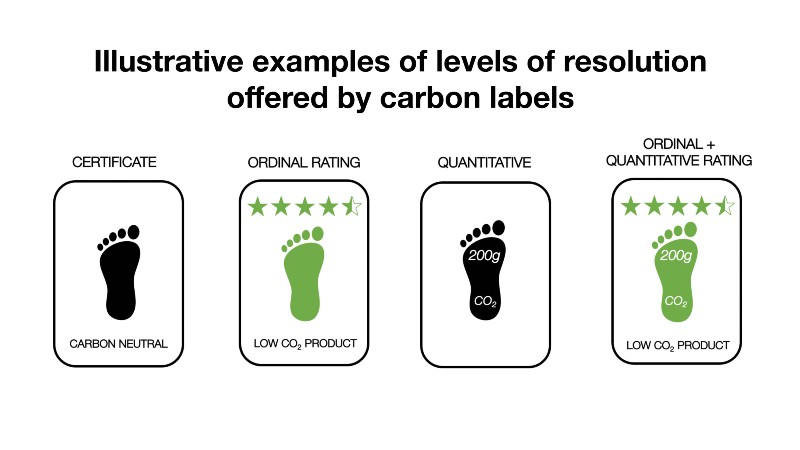
Countries like the US and the European Union are implementing stringent carbon regulations, such as the EU’s Carbon Border Adjustment Mechanism and increasing scrutiny on supply chain emissions.
Vietnamese businesses that fail to adopt carbon labelling risk losing access to lucrative markets. However, those that proactively integrate carbon footprint transparency into their products can gain a competitive advantage, enhance brand reputation, and secure long-term profitability.
Across the world, forward-thinking countries have embraced carbon labelling as a strategic tool for trade success. These efforts have not only helped businesses comply with regulations but have also opened doors to new investment and consumer markets.
Japan has implemented a government-backed carbon labelling programme that allows companies to display detailed carbon footprint information on their products. This has strengthened consumer trust and made Japanese goods more attractive in environmentally conscious markets such as the EU and North America.
The South Korean government incentivises businesses to adopt carbon labelling through tax benefits and green export support schemes. Companies that participate gain access to new trading partners, particularly in Europe, where sustainable supply chains are becoming the norm. Thailand, a key competitor to Vietnam, has integrated carbon labelling across industries such as food processing, textiles, and electronics. Thai exporters, particularly in agriculture, now benefit from preferential treatment in European supermarkets and trade agreements.
These case studies highlight an important lesson: carbon labelling is not just about compliance – it is a business strategy that enhances market access, builds consumer confidence, and future-proofs exports.
For businesses in Vietnam, waiting until carbon labelling becomes a legal requirement would be a mistake. Many international corporations have already set ambitious sustainability targets, requiring suppliers to provide verifiable carbon footprint data. Voluntary carbon labelling can position Vietnamese enterprises as reliable, future-ready partners.
It works by companies conducting a life cycle assessment to measure emissions from production to disposal. Products are labelled with a carbon footprint score, helping consumers and businesses make informed choices. Labels are often verified by third-party certifiers to ensure credibility and compliance with global standards.
The benefits include a boost for green supply chains. Companies like Nestlé and Unilever prioritise suppliers that provide carbon footprint transparency. Vietnamese food and beverage exporters can gain an edge by aligning with such demands.
Businesses with carbon-reduction strategies attract funding from international banks and investors that focus on increasing environmental, social, and governance (ESG) investment.
It also leads to improved consumer trust and higher sales. Studies indicate that climate-conscious consumers prefer labelled products. In markets like the EU, organic rice, seafood, and textiles from carbon-labelled brands command higher prices.
For Vietnamese companies looking to integrate carbon labelling into their strategy, a step-by-step approach can make the transition smooth and effective.
Pilot carbon labelling programmes in key sectors are critical, with a focus on industries where carbon labelling is already gaining momentum, such as textiles, seafood, agriculture, and furniture.
The process must start with one or two high-export products and conduct a carbon footprint analysis to understand emissions sources. Industry associations must also work with international partners to ensure the label aligns with EU and US standards.
Collaboration with certification bodies is also key, and partnering with recognised organisations such as the Carbon Trust (UK), TÜV Rheinland (Germany), or SGS (Switzerland) for certification is advised, as is engaging with Vietnamese regulatory bodies to advocate for government incentives similar to South Korea’s model.
Another vital part of the process is to leverage green financing and government incentives to access ESG-linked loans and grants that support supply chain improvements. Alongside this, there needs to be a move to propose carbon labelling incentive programmes through the Vietnam Chamber of Commerce and Industry or the Ministry of Industry and Trade.

The future of Vietnam’s export competitiveness is green. The world is moving towards sustainable trade, and carbon-labelling is no longer optional for businesses that want to thrive in international markets. By learning from successful global initiatives, Vietnamese companies can turn carbon transparency into an economic advantage rather than a compliance burden.
The time to act is now. Companies that lead in carbon labelling will not only future-proof their businesses but also shape Vietnam’s reputation as a responsible trade leader.
Vu Trung Kien




